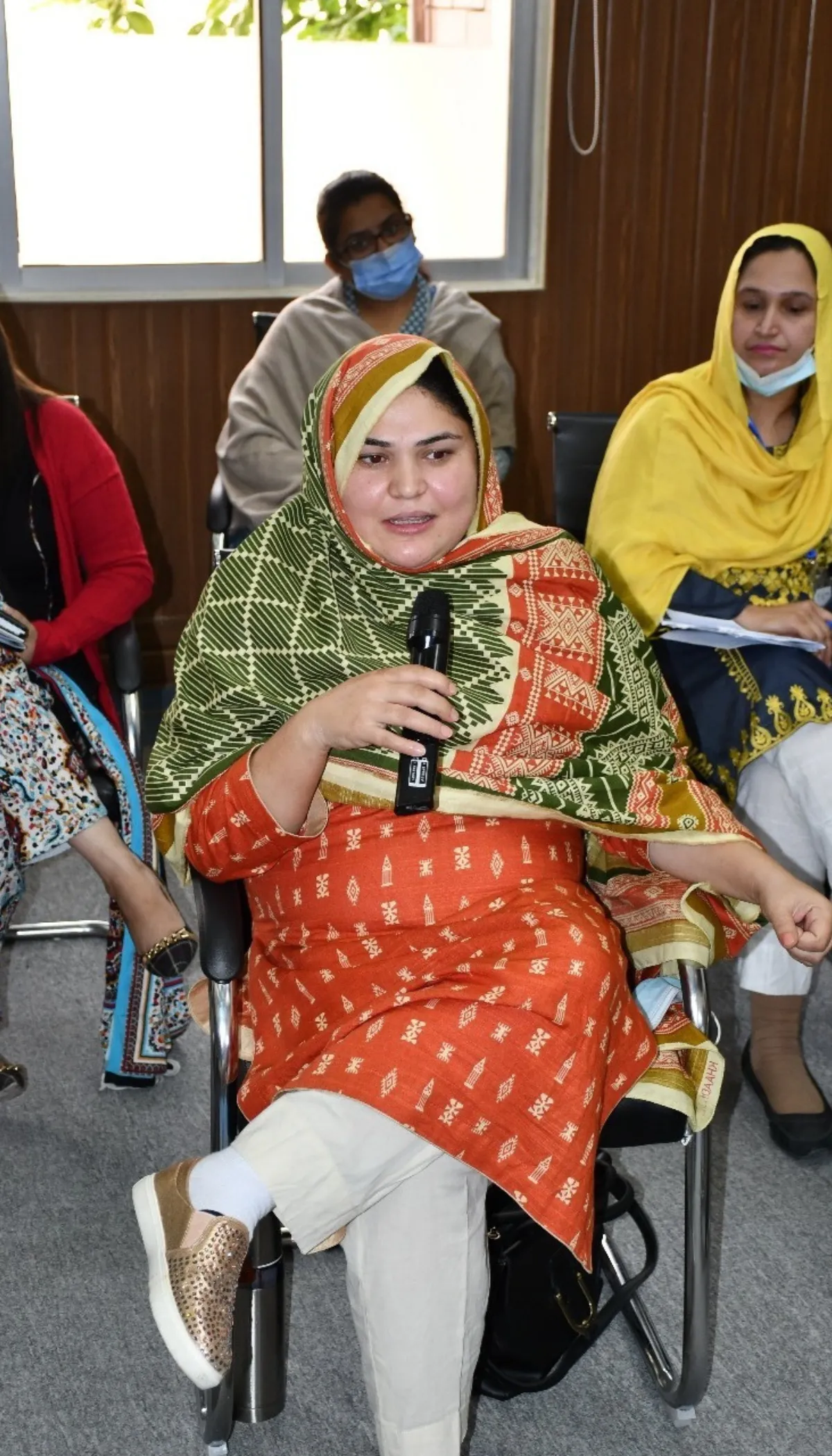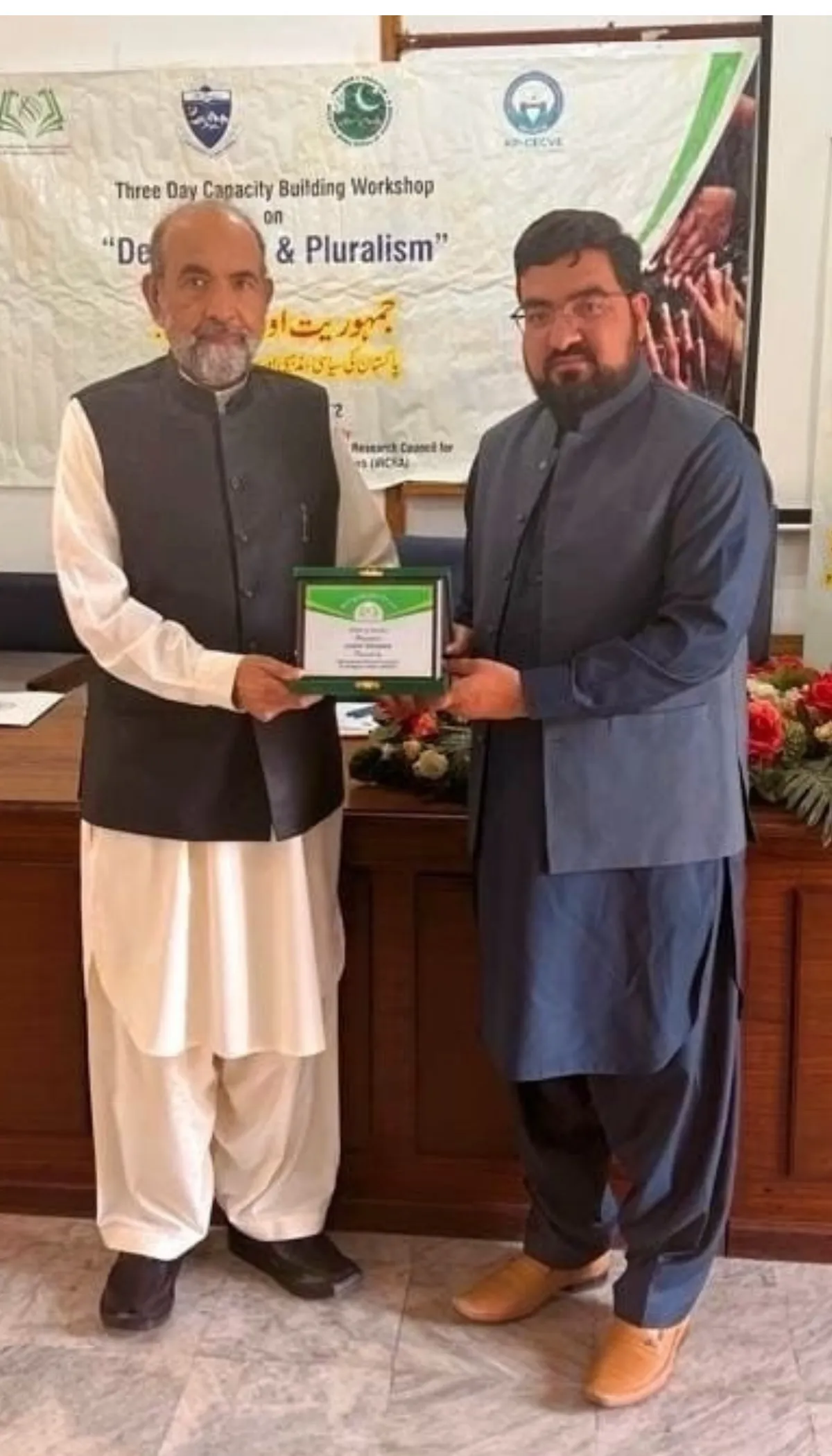The International Council for Religious Affairs (IRCRA) was founded in 2013 as a non-profit, non-governmental, think tank and research organisation. The journey of this orgization started with one man’s vision, Mr. Israr Madni, who himself is a madrasah graduate and religious leader. Mr. Israr was raised in a religious Muslim household in a remote area in the province of Charsadda in Khyber Pakhtunkhwa, Pakistan. He entered the development sector as a field coordinator after graduating from a madrassa, despite receiving a great deal of criticism for his peaceful endeavour from the religious community, he was able to dispel religious groups’ preconceptions about the NGO sector and built trust. His professional experience begins with religious engagement programmes based on this trust.
IRCRA started its work with a project to help eradicate polio in Pakistan through religious leaders’ involvement after observing polio-afflicted children. Through its constant efforts and dialogue with religious clergy IRCRA was able to solicit their support to address some of the major concerns of the community about polio vaccination. Facilitated by IRCRA, prominent religious scholars, professors, and leaders issued statments and provided religious edicts (Fawa) in favour of polio vaccination. They allowed IRCRA to film and share their supporting videos about polio immunisation for its campaign on mainstream and social media. Some intellectuals and religious leaders wrote in local periodicals supporting polio vaccination and opposing militant organisations’ misinformation.
After a very successful program of Polio eradication through religious engagement IRCRA moved on to set a future agenda to engage religious leadership and community for peace and development. Since 2015, IRCRA have expanded its programs to promote inter and intra faith harmony, education and awareness, democratic values, trend analysis of religious journals & publications, and policy level advocacy. It has initiated dialogues & capacity building program of faith leaders and youth all over Pakistan & Afghanistan on the subject successfully challenging the militants’ false narratives with a counter narrative for peace and development based on religious and spiritual teachings.
IRCRA also has developed and published many books and booklets. It has published a book titled Islam and Democracy, in three languages (Urdu, Pashto and English), which builds a case for democracy from the religious perspective. As a result of IRCRA’s initiatives, a multitude of voices opposing anti-democracy groups in the religious community were generated. IRCRA has also developed a “Narrative of Sectarian Reconciliation” with the assistance of religious leaders by engaging around 300 leaders and scholars, and established platforms like a “Mutahida Ulema Jirga” in Khyber Pakhtunkhwa, an “All Sect Ulama Board” in Punjab, and a “Peaceful Karachi Forum” in Sindh to collectively speak out against terrorism and sectarianism.”
IRCRA has worked towards a single purpose; ‘to bring a positive change and to promote peaceful coexistence by engaging diverse groups’. Since its establishment, the unwavering dedication of IRCRA’ teams its mission of preventing, mitigating, and transforming inter and intra-religious, ethnic and social conflicts in Pakistan and in Afghanistan is continued.








